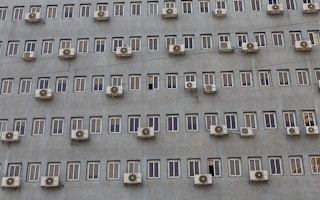There is no doubt that 2016 will be remembered as a year of disruption and change. Many sad and disturbing events have dominated the news, and it can be difficult to look forward to the new year with rose-tinted glasses.
But we sustainability people are eternal optimists. Without our fundamental belief that we can make a difference, we would have never chosen to spend our days tackling some of the biggest challenges of our time.
We would not believe that human rights abuses in factories and fields could be prevented and remedied; we would shake our heads at the idea that deforestation is not an unstoppable force; and we would not travel the world seeking to convince board rooms that corruption is not the only way to do business.
Thankfully, 2016 was indeed a year of much accomplishment. Where much of the political sphere seemed dire, partnerships between civil society and business once again proved that change can be made through dialogue, commitment and a bit of bravery.
A hot year – but cooling down?
While no one believes we have halted climate change, 2016 brought some good news: Even as climatologists announced that 2016 was projected to be among the warmest in history, research from the Global Carbon Project showed almost no increase in annual emissions of carbon dioxide between 2014 and 2016.
Around same time, the secretariat of the United Nations Framework Convention on Climate Change confirmed that enough countries had ratified the Paris Agreement to satisfy the criteria required to trigger it coming into force on 4 November, far earlier than expected.
Corporate players also contributed to the good news when the International Civil Aviation Organisation announced new measures to limit carbon dioxide emissions from international flights, which are not covered by the Paris Agreement. This set the scene for a successful COP22 in Marrakech, where drama was notably absent, but results were much stronger than many previous summits.
Will 2017 be a year of further strides towards concerted global action? There certainly seem to be momentum, with China backing international action and investing heavily in renewables. On the other hand, the incoming US President has caused concerns that climate change scepticism will be given centre stage.
A first step to save our forests?
The battle to save our forests also made headway: 2016 brought about a historical no-deforestation consensus amongst major green groups and a number of much-derided industries historically involved in land clearing. In November, the biggest players in the palm oil industry and pulp and paper signed on to a new version of the High Carbon Stock Approach, which now forms a blueprint for preventing deforestation.
The Approach tackles the difficulties of defining forests, and takes into account the customary and indigenous rights often associated with forested areas. While still mainly applicable for moist tropical forest it is still a massive step towards a paradigm where civil society and business can work together to save some of the world’s most valuable ecosystems and wildlife.
“
2017 is likely to bring more harrowing revelations, and there are going to be setbacks and scandals. But to the sustainability optimist, scandals and exposures is a first step to prevention and remedy.
Much left to do, but transparency will help
Having spent 20+ years in the sustainability sphere, I do occasionally succumb to doubt. Can we really make a difference? There really are many mountains to climb, and each week we uncover new tragedies affecting communities, nature and workers around the world.
In the human rights space, the news were less positive: As the year was ending, Amnesty International released a report pointing to widespread use of child labour and bonded labour in the palm oil industry, including in operations certified by the Roundtable on Sustainable Palm Oil.
But while it is disappointing to unearth such practices within an industry that is deeply engaged in the sustainability agenda, the response from the industry has been proactive and constructive. One of the largest player, Singapore-listed Wilmar International said that they ‘welcome this report, as it helps highlight labour issues within the wider palm oil industry and in Indonesia specifically’. I am hopeful that bringing these cases to light will indeed mark the first step of change.
2017 is likely to bring more harrowing revelations, and there are going to be setbacks and scandals. But to the sustainability optimist, scandals and exposures is a first step to prevention and remedy. The big challenges of climate change, deforestation and human rights abuses will not disappear, but 2016 showed that despite political turmoil globally, businesses and civil society can still take steps to move forward.
Rikke Netterstrom is an Executive Director of CSR Asia based in Malaysia.This article is republished from CSR Asia Weekly.


















